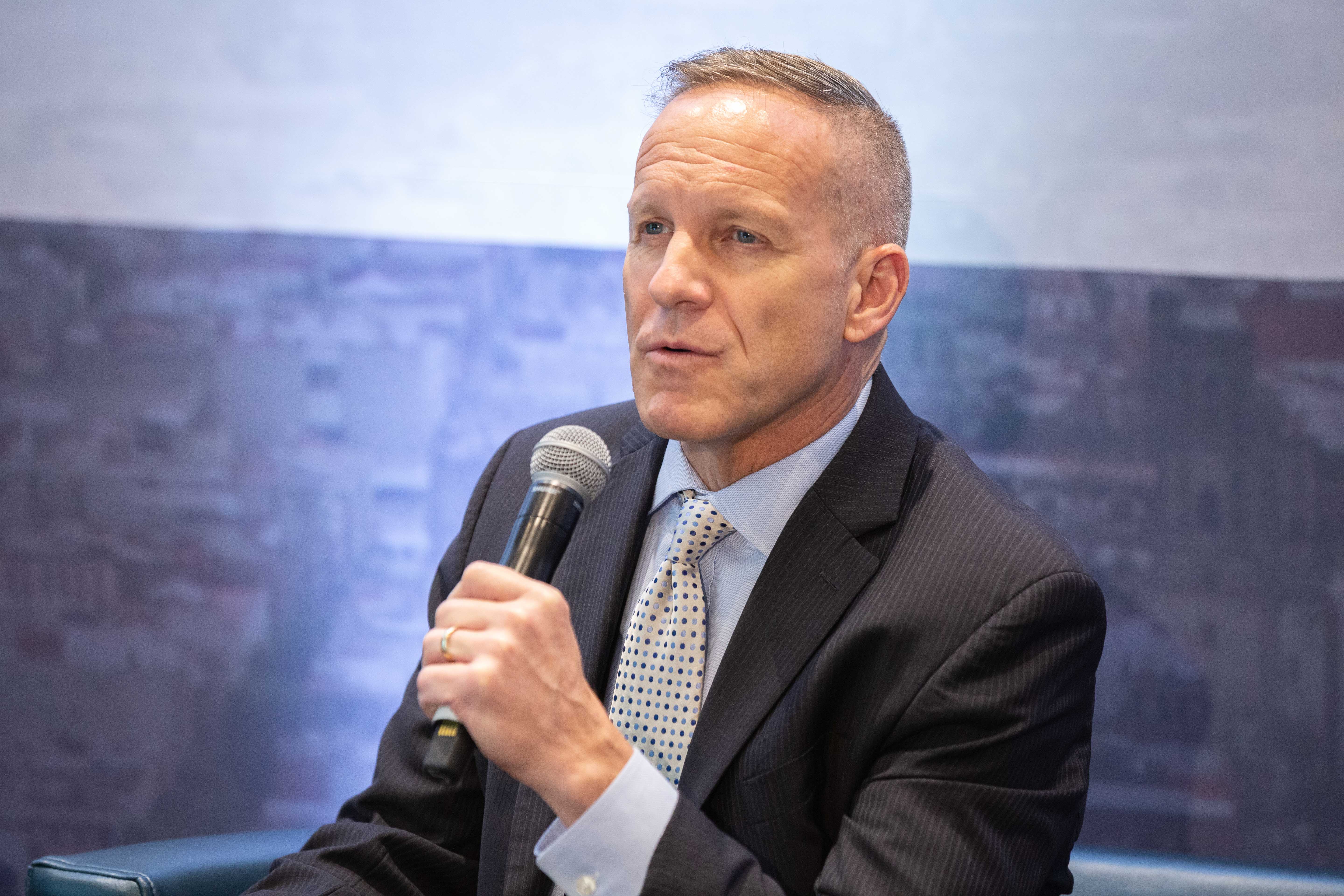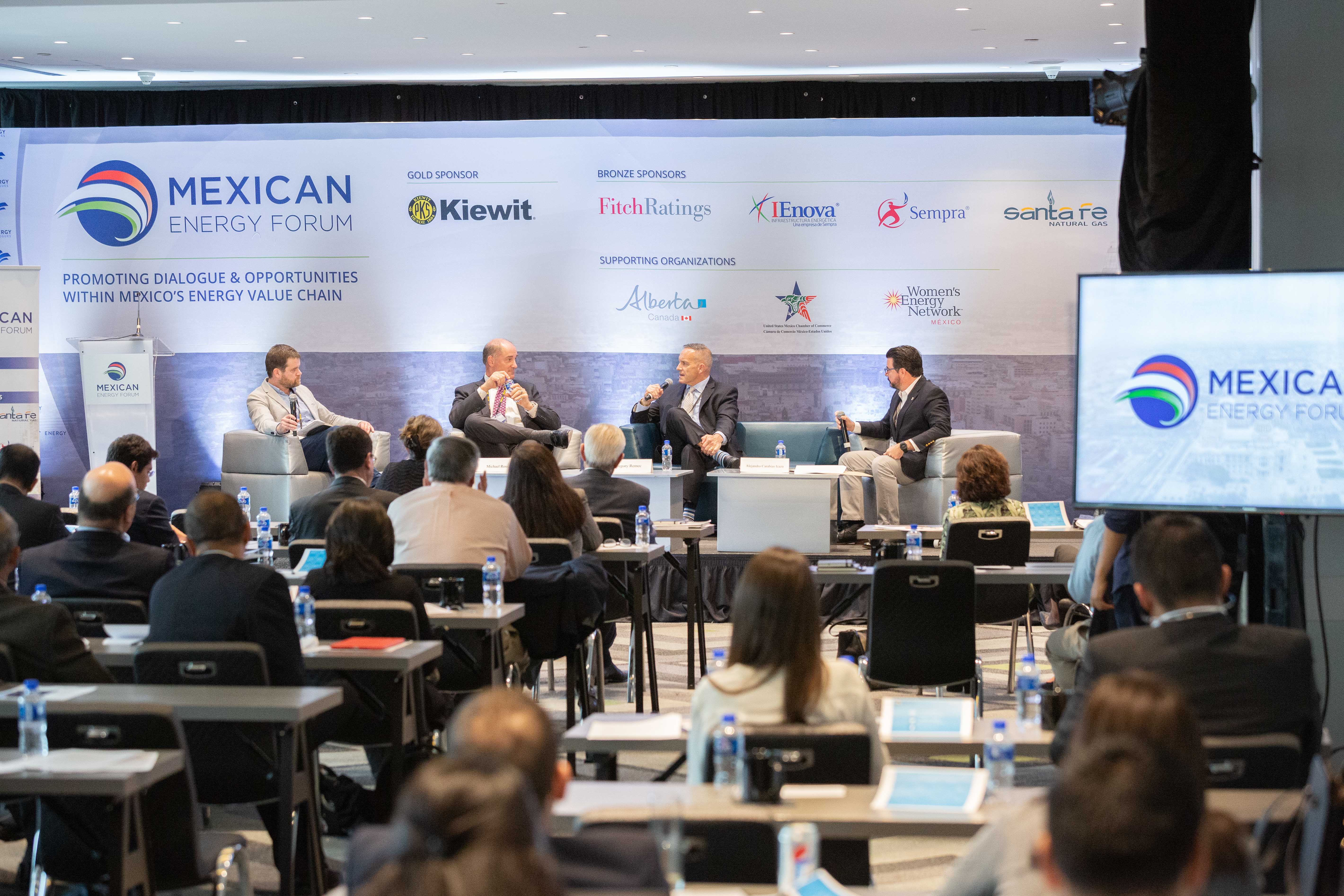Fitch Ratings Discusses Infrastructure and Project Development in Mexico
As a follow up to the 2019 Mexican Energy Forum, Energy Dialogues spoke with Gregory Remec, Senior Director Global Infrastructure Ratings and Astra Castillo Trevizo, Senior Director, Global Infrastructure & Project Finance Group from Fitch Ratings, a sponsor of this year’s Mexican Energy Forum.
We are pleased to share our recent conversation with Astra and Greg from Fitch Ratings.
ED: Can you share with us Fitch Ratings position in the Mexican energy market? How has it developed since the reform and what is the path moving forward?
FR: Fitch has extensive experience in the energy sector thanks to the diversified portfolio of projects that the agency is involved in internationally. Certainly, Fitch Ratings Mexico has benefited from the robust methodologies developed from the agency’s exposure to global projects, market dynamics and technologies. Although our public energy portfolio in Mexico is currently limited as it only comprises two transactions, we have rated a number of private power-related transactions for the Mexican electricity sector in the last few years. Fitch has a strong commitment to develop its participation and knowledge in the energy sector, not only in Mexico, but across Latin America. The latter is demonstrated by the existence of a specialized energy team for the region, composed by analysts fully devoted to power projects and research.
ED: In your opinion, what are the main challenges the energy industry in Mexico is facing today and how can they be overcome?
FR: The main challenge at this moment is to control the uncertainty derived from the recent governmental announcements as to keep investments flowing to the country. The cancellations of transmission line projects and the fourth long-term electricity auction as well as the suspension of Pemex farm out bids, and the delay of two oil and gas rounds, have increased uncertainty in the Mexican energy industry. While the 2013 reform liberalized the energy market creating the conditions to incentivize private investment in the industry, the new federal administration is seeking to strengthen the market and financial positions of the state-owned players, Petróleos Mexicanos (Pemex) and Comisión Federal de Electricidad (CFE), which could lead to a smaller role for private investment. It might be unlikely that the current administration will reverse the core energy legal framework implemented over the past few years, since it has assured the agreements executed as a result of past auctions will be honored. Fitch expects that uncertainty could be mitigated with the compliance under the current legal framework, the release of a clear and supported business and financing plans for the industry as a whole, as well as transparent communication between the government and the private sector. The partnership between the public and the private sector is necessary to unlock the energy projects the country needs to develop due to current budgetary restrictions. Other important challenges currently present in the industry are the lack of historical electricity prices to mitigate merchant risk, as well as an increasingly limited transmission capacity that can end up in power blackouts in highly populated areas and ultimately hinder investments in generation projects.

ED: Fitch Ratings recently lowered Mexico’s sovereign debt rating to BBB from BBB+. What triggered this additional downgrade? How will this impact foreign investment in Mexico?
FR: The downgrade of Mexico’s IDRs reflects a combination of the increased risk to the sovereign’s public finances from Pemex’s deteriorating credit profile together with ongoing weakness in the macroeconomic outlook, which is exacerbated by external threats from trade tensions, some domestic policy uncertainty, and ongoing fiscal constraints. The impact of the contingent liability represented by Pemex weighs increasingly heavily on the sovereign credit profile. We believe foreign investment will be paying close attention to any details released by the Federal Government regarding Pemex future investment and financing plans. But questions related to the sovereign should be addressed by Fitch’s analyst covering the country.
ED: Due to the downgrade in the rating, PEMEX’s rating was also downgraded. What impact will this rating have in the energy industry? How will this impact current and potential infrastructure projects?
FR: Pemex serves as a state producer, transporter, refiner, and seller of Mexican petroleum and natural gas, and the Negative Outlook on its rating continues to reflect severe underinvestment which could lead to further production and reserves decline. This could derive in the company having access to a costlier debt, in a heighten counterparty risk in projects in which Pemex acts as offtaker, and also in weakening means for thermal generators to receive fuel derived from Mexico, which could further increase the dependence that Mexico has on the importation of fuel to serve firm power producers.
ED: During the Mexican Energy Forum this June, which were the main topics discussed that you consider vital to the development of the industry in Mexico?
FR: We consider the following vital topics –
- Transparent Mechanism to Continue Developing New Generation Capacity and Solid Funding Sources – In order for the development of new generations to keep pace with load growth within the country, there needs to be transparent mechanisms in place for new generators to contract with third parties to make such investments viable. Since the fourth power auction was canceled, transparency related to future spot prices has decreased as market participants do not have certainty with regard to new capacity being installed in the system, which increases the margin of error when forecasting future spot prices. Potential future spot price volatility and uncertainty makes off-takers hesitant to enter into long-term PPAs. If a project cannot contract its energy and capacity over the majority of its useful life, this significant lack of stability in its revenue profile significantly increases the risk associated with investing in a new generator since the debt covering the construction of the plant typically takes the majority of the asset life (20-50 years) to repay at a specific return rate. Development of the energy industry is somewhat dependent on creating opportunities for private participants to invest in the sector, since the government could not have adequate funds to develop the sector completely on its own. This, among other factors (i.e. reduction in transmission congestion, fuel shortages, diversification of energy mix, etc.) should continue to decrease sources of spot price volatility and increase willingness of counterparties to invest and enter into longer-term power contracts.
- Reliable Transmission Network Free from Congestion – There is bound to be imbalances in energy between states due to the supply and demand dynamics that affect each state, which can include seasonality, relative energy consumption levels, and the amount of generation capacity. To ensure that no state within the nation suffers from neither a lack of electricity nor suffers from congestion, the transmission network needs to have adequate capacity to transfer electricity throughout the country and keep the system as a whole balanced.
- Reliable and Sufficient Pipeline Network – Even if the renewable section does expand as was originally anticipated, firm capacity provided via thermal generators will always be needed to provide for reliable electricity production during periods of low resource. As electricity demand grows, the need for firm capacity will also grow, which presents a need for the continued expansion of the pipeline network from the United States reaching throughout Mexico so that there is not a lack of electricity due to fuel shortages in certain regions.
_
This June, Energy Dialogues proudly presented the 2019 Mexican Energy Forum, in Mexico City. Already established as a premier event for the Mexican and global energy sector, the MEF offered exclusive strategic dialogue and connection among top industry leaders.
Join prominent energy front-runners for panel discussions, round tables, networking opportunities, and commercial benefits at our next dialogue, the North American Gas Forum, this October in Washington D.C.






